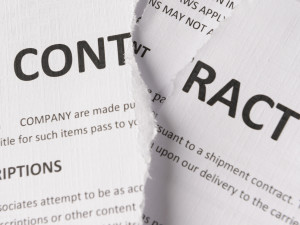
Establishing a global business is a dream for many brands wishing to grow their market share and increase their revenue and profit potential beyond their home borders. Yet, this dream can quickly turn into a nightmare for those that are inexperienced, impatient or unprepared for the challenges that lie ahead.
For every company that has been successful, there are multiple companies that have failed, often miserably. Unfortunately, many companies that are new to international will make the same mistakes and suffer the same consequences as those before them.
Don’t be that company!!! Learn from the lessons of others.
In my 25 years of doing international business, I have found 5 major reasons why fashion brands often fail overseas. Are you making these mistakes? Consider these prior to your launch or even if you have already launched in a market so that you can be one of the successful brands and reap the benefits of international expansion!!
Reason #1: Falling In Love With Your Product
Companies can sometimes be blinded by the success of the business that they are doing at home and assume that their product will have the same success around the world. This belief may cause them to take short cuts and not do the research or due diligence that is necessary in order to be successful in international markets.
A common perception is, “If it works here, why wouldn’t it work everywhere else?”
Consumers around the world are radically different in their needs, wants and buying behaviors. Depending on the country, your product may be perfect the way it is, or it may not! And even if the product is fine, the packaging and/or marketing materials may need to be tailored for the particular culture and consumer that you will be targeting. Think language differences, country laws, different buying behaviors etc.
Solution: Do comprehensive market research (both primary and secondary) and first make sure that there is a need or desire for your particular product and that you can position and price it properly given the logistics, taxes and retail structure of the country. Check the competition. Can you differentiate your product in some way? Successful international brands have a very good understanding of the local competitive environment, consumer buying behaviors and the countries laws and logistical makeup.
Reason #2: Chasing A Quick Sale, Rather Than A Long Term Business
I have found that many companies and brands go international by accident, not by plan, and they tend to rush into partnerships too quickly. Don’t settle for the first company that approaches you just because they promise big numbers. Developing aggressive business plans is easy… executing them is another story.
Nothing will set you back more in time, money and emotional well-being than being with the wrong partner.
Solution: Take your time and move slowly. Thorough due diligence of the country and your prospective partner is key….. Check references carefully and do credit checks. Beware of the company that wants to move quickly. The best ones are usually those that take it slowly and want to do it right. It takes time and patience to build a great, enduring global brand, so be patient and plan for the long term.
Reason #3: Chasing The “Hot” Countries
I see many companies with little international exposure chasing the country “du jour” (of the day) such as Brazil, China, Russia and India due to the media’s constant touting of their enormous populations and rising, untapped middle class. While this may be true, these markets can be extremely complicated and risky due to complex import structures, high tax and duty rates, poor infrastructure, a radically different consumer profile and/or strong local competition. There is a reason why these markets are largely untapped!
Solution: Research, research and more research!!!! Make sure you understand the environment that you are entering, from the tax laws to the consumer. And keep in mind that many “booming” countries do not boom forever.
Start small and don’t go “all in” right away!
Consider countries like Canada first that are more similar to the USA. Explore ecommerce in complicated markets so that you can get a feel for the desirability of your product, your pricing model and the logistical challenges that you may encounter.
Reason #4: Downplaying The Importance Of Culture
Culture is one of those things that many executives and company owners take for granted when they enter international markets. They fail to hire people who have experience in that market or train their employees in the cultural nuances of that country. I have seen many deals never make it out of the gate because of cultural misunderstandings and communication breakdowns during the negotiation process. And if a deal is made, often cultural issues prevent the development of a long term, successful business.
Solution: Make cross cultural training of your staff part of your plan when developing your international expansion strategy. Consider having an experienced negotiator who understands the cultural style of your counterpart assist you in the negotiation.
Don’t cut corners when hiring your international staff! Make sure that they are experienced in the key markets where you will be doing business.
If you are putting an expat in a country, make sure that he/she has experience in that particular country and is willing to work alongside a local country manager. While the expat will be your eyes and ears and help keep the brand consistent according to your values, the country manager will have the connections, experience and local knowledge to make the business work.
Reason #5: Going Global For The Wrong Reasons
When revenue begins to slow down in one’s home market due to economic uncertainty, a mature market, or just a changing consumer, a common reaction for brands is to expand internationally. Brands have visions of untapped markets and hungry consumers waiting anxiously for their product.
The truth is that being successful in international markets is far more difficult than being successful in your home market.
If you see “cracks” in your business model at home, those “cracks” will be accentuated when you venture overseas. Plus, consumers and retailers overseas are drawn to strong, successful brands, not those struggling in their own domestic markets!!
Solution: Fix your problems at home first before venturing overseas. International expansion is anything but a quick fix… it takes years of time and investment to make a business successful. For the best results, you need to be financially strong and “firing on all cylinders” at home in order to survive the ups and downs of international expansion. Again, do your research to make sure that your product is needed and wanted and that you can logistically position and price your product where it needs to be in the market.





